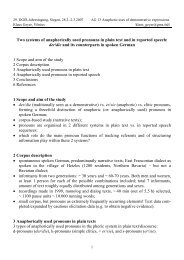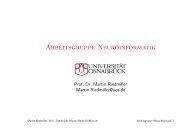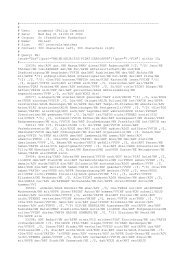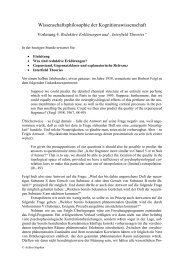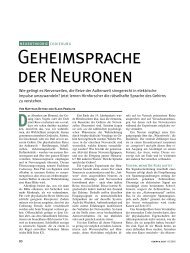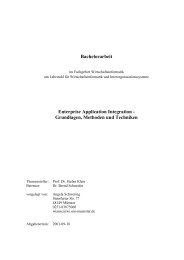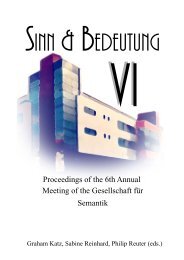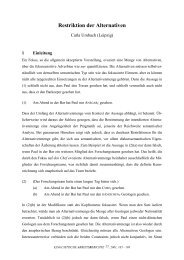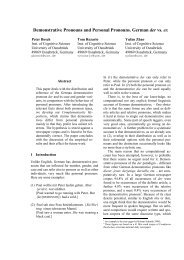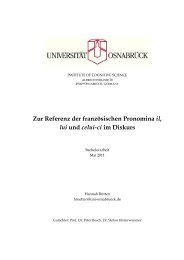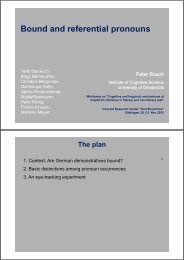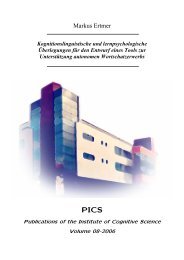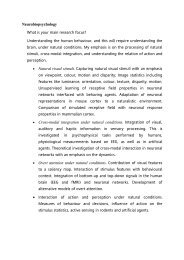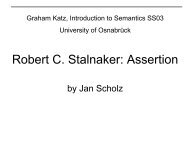Weak definites and German preposition - Cognitive Science
Weak definites and German preposition - Cognitive Science
Weak definites and German preposition - Cognitive Science
You also want an ePaper? Increase the reach of your titles
YUMPU automatically turns print PDFs into web optimized ePapers that Google loves.
Carlson's <strong>Weak</strong> Definites<br />
Carlson et al. propose the following conditions for the availability<br />
of weak definite readings:<br />
(A) the NP is governed by specific lexical items (verbs,<br />
<strong>preposition</strong>s)<br />
(B) there is a lexical restriction as to the head noun<br />
(C) the noun must not be modified (exception: "affective"<br />
expressions)<br />
(D) semantic enrichment<br />
(E) truth-conditional similarity to in<strong>definites</strong><br />
All of these characteristics are shared by bare singular NPs<br />
Carlson's <strong>Weak</strong> Definites<br />
Illustration of these characteristics:<br />
(A) the NP is governed by specific lexical items (verbs,<br />
<strong>preposition</strong>s)<br />
(i) Mary went to the store / went behind the store.<br />
(ii) Mary closed the window / smashed the window.<br />
(iii) Mary is in prison / *inside prison<br />
(B) there is a lexical restriction as to the head noun<br />
(i) Mary listened to the radio / listened to the tape recorder.<br />
(ii) Mary went to the doctor's / went to the health centre.<br />
(iii) Mary is in prison / *in penitentiary<br />
5<br />
6<br />
5<br />
6



